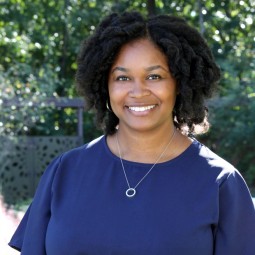HuffPost 'Living Room Kids' vs 'Bedroom Kids'
July 09, 2025
As young kids, my sister and I would often take our toys out of our bedrooms into the communal spaces of our childhood home. We’d use the couch as a pretend bus, the dining table as a pretend hotel. Save for the kitchen, no shared area of the house was off-limits to us, as long as we tidied the toys up afterward. We only ever used our bedrooms for sleep.
Recently, TikTok creators have been talking about the joys of being a part of a “living room family” — as opposed to a “bedroom family,” where kids hang out in their bedrooms instead. In many of the TikToks shared, creators break down how they think families foster these two kinds of family dynamics and how they influence kids’ behavior.
According to TikTok, “living room” kids are very comfortable in shared spaces in the house, so they spend a lot of their time there. They may do their homework at the dining table, even if they have a desk in their room. They may bring their crafting hobby into the living room without feeling anxious that their parents are there, too.
In contrast, they imply that “bedroom” kids feel discomfort in shared spaces and much prefer retreating to their own rooms to do their hobbies or schoolwork. They feel like they may be judged or involved in conflict when they are in the same area as their parents, some TikTokers say.
HuffPost spoke with child and teen psychology experts to share their thoughts. Below, experts also unpack the reasons some kids end up as “bedroom kids”— and what the actual important takeaways are from these conversations around “living room” and “bedroom” family dynamics.
Yes, There Are Green Flags For ‘Living Room’ Kids
Ideally, a home’s communal spaces would be for the whole family to enjoy. If all family members feel comfortable hanging out in the living room or dining room, this “will naturally lend itself to more frequent interaction and social engagement within the household, which is really important for fostering emotional security,” said Dr. Taren Coley, a double board-certified psychiatrist and the director of child and adolescent services at HopeWay.
Read the full article in HuffPost here.
Learn More About Dr. Coley:
 Dr. Taren Coley is double-board certified in General Psychiatry and Child and Adolescent Psychiatry. A native North Carolinian, she earned her Bachelor of Arts in Psychology from East Carolina University and her Medical Degree from the University of North Carolina at Chapel Hill. Dr. Coley remained at UNC to complete her general psychiatry residency training and a child and adolescent psychiatry fellowship. Through her training, she has gained expertise in human development throughout the lifespan and treatment of individuals through psychopharmacology and psychotherapy. At HopeWay, Dr. Coley serves as the Director of Outpatient Services overseeing the clinical operations at HopeWay Psychiatry & Associates, in addition to treating clients at HopeWay. Dr. Coley’s comprehensive and individualized treatment approach helps clients understand and appropriately manage their diagnoses, allowing them to move forward in their recovery.
Dr. Taren Coley is double-board certified in General Psychiatry and Child and Adolescent Psychiatry. A native North Carolinian, she earned her Bachelor of Arts in Psychology from East Carolina University and her Medical Degree from the University of North Carolina at Chapel Hill. Dr. Coley remained at UNC to complete her general psychiatry residency training and a child and adolescent psychiatry fellowship. Through her training, she has gained expertise in human development throughout the lifespan and treatment of individuals through psychopharmacology and psychotherapy. At HopeWay, Dr. Coley serves as the Director of Outpatient Services overseeing the clinical operations at HopeWay Psychiatry & Associates, in addition to treating clients at HopeWay. Dr. Coley’s comprehensive and individualized treatment approach helps clients understand and appropriately manage their diagnoses, allowing them to move forward in their recovery.
